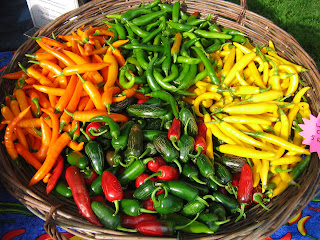Cheese Cheese Cheese Cheese
It was with great pleasure that I once again found myself in the Marlborough Sounds, getting comfortable with a couple of goat. Not just any old goats, but a rather friendly pair from Sherrington Grange.
While I have had random experiences in the past with these four-legged creatures, they are the stars of a small cheesemaking enterprise that has managed to impress all those who have tried the product, including the team from the Cloudy Bay winery that I was with that day.
A recent winner in the 2009 Cuisine Artisan Awards, Sherrington cheese has now been showcased all over New Zealand and is truly unique to the Marlborough region.
Making cheese is something the Harper women have done for generations. They use fresh goats' milk from their property and fresh cows' milk from neighbouring properties to make cheese in a farm dairy, using recipes that are more than two centuries old.
Each cheese is handcrafted using traditional methods that have been discarded by modern dairy factories in the quest for efficiency. At Sherrington, they have chosen to make only limited quantities of cheese, using the old ways, because they believe it creates a better product.
This is the way cheese was before mechanisation and standardisation became the norm. Sherrington cheeses look, smell and taste the way they were meant to – a real taste of history.
If this is the way that cheese is supposed to taste, then I want more, for there are very few places where you can try or taste something that is truly representative of its surroundings and the true essence of the people who produce it. This is a real skill and talent that Lisa and her mother have, and manage to put into every batch of cheese that leaves the property.
PLUM PASTE
1kg plums, halved
1 cup water
caster sugar
2 Tbsp lemon juice
Choose plums that are slightly under-ripe rather than over-ripe, as their pectin content will help this paste set faster, ensuring a true plum flavour that will not taste overcooked.
Place the plums, stones and water in a large, heavy-based saucepan. Simmer, covered, until just softened. Pass the plums through a mouli, discard the stones and return to the saucepan. Weigh the pulp and add an equal quantity of sugar.
Stir over a low heat until the sugar has dissolved, then add the lemon juice. Turn up to a brisk simmer, stirring occasionally, until thickened. This process will take 30 minutes to an hour, depending on the pectin content of the fruit. Test the plum paste as you would jam; a small amount on a saucer should form a skin and thicken quite quickly after 1-2 minutes in the refrigerator.
Pour the paste into a rectangular loaf tin lined with baking paper and leave to set. Store in an airtight container in the refrigerator or in a cool, dark place until ready to use with some of the best cheese in New Zealand, the very likeable Sherrington Grange cheeses



Comments
Post a Comment